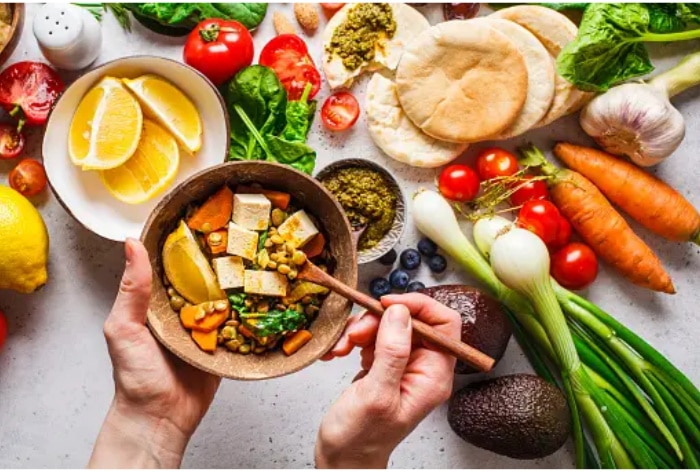An Ayurvedic diet can improve your health year-round, but it’s especially beneficial during the monsoon. Maintain good health by eating according to Ayurveda.
Ayurvedic Monsoon Diet: It is crucial to take more care of your health during this time of the year because the monsoon has arrived, we have to deal with a change in our diets and there are unpredictable weather changes. According to traditional Ayurvedic beliefs, the body becomes weak during the summer due to the heat, and during the monsoons, one would experience a further decrease in metabolic capacity and be more prone to stomach upsets and even infections. Dr. Subash S. Markande, Consultant Physician, SwaSwara said IANS some main measures to mitigate the effect of low metabolic activity and improve intestinal health.
1) FOOD TO EAT DURING THE MONSOON:
- Food should consist mostly of unctuous (fats and oils), (slightly) sour, less sweet, salty flavors and foods that are simple and easily digestible in nature.
- Old grains and rice harvested and stored for more than sixty days, wheat, bean soups, and even goat meat are beneficial. While ghee and milk should be taken with food to maintain and balance metabolism.
- Vegetables like pumpkin, squash, thigh, squash, garlic, and fenugreek are beneficial and supportive in maintaining body tissues.
- Dal preparations like khichadi, kadi, rice porridge, plain jeera rice, upma are also good for daily consumption.
- Food should be eaten while it is hot.
- Chew and eat a small piece of ginger, brown sugar, or rock salt before each meal to aid your digestion.
2) HOT DRINKS FOR THE MONSOON SEASON
Hot or even slightly warm drinks are recommended, as they help to ignite the digestive fire.
- Boiled water
- ginger water
- cumin water
- coriander water
How to prepare it?
- Boil about 1 liter of water thoroughly in a pot and add about ½ teaspoon of ginger/cumin seeds or coriander seeds and bring to a boil.
- Cover the water with a lid. Let the preparation rest for about 30 minutes before drinking it. Important: Once these herbal waters are prepared, they must be consumed within 6 hours of preparation.
3) FOODS TO AVOID DURING THE MONSOON
- As the metabolism slows down during the monsoons, the ideal is to avoid foods and preparations that are difficult to digest, for example, ice cream, dairy products, fatty foods, fried foods, etc.
- Potatoes, leafy vegetables, tubers, raw and salads, packaged foods, curd, red meat, excess water and liquids.
- Avoid complex food preparations like biryani, chole, rajma etc. or just eat them in moderation.
4) LIFESTYLE CHANGES DURING THE MONSOON
- A healthy diet needs to be supported by a healthy lifestyle to achieve the desired benefits.
- Avoid sleeping during the day and avoid exertion and excessive exercise as well.
- Keep your environment dry and clean. Do not allow water to accumulate.
- Avoid walking in dirty rainwater and getting wet in the rain. If you do get wet, put on dry clothes and dry your head as soon as possible.
- Keep your body warm.
- Dry clothes using loban and dried neem leaves to keep fungus away.
(With input from IANS)
Published Date: July 23, 2023 8:54 AM IST
–>
–>


